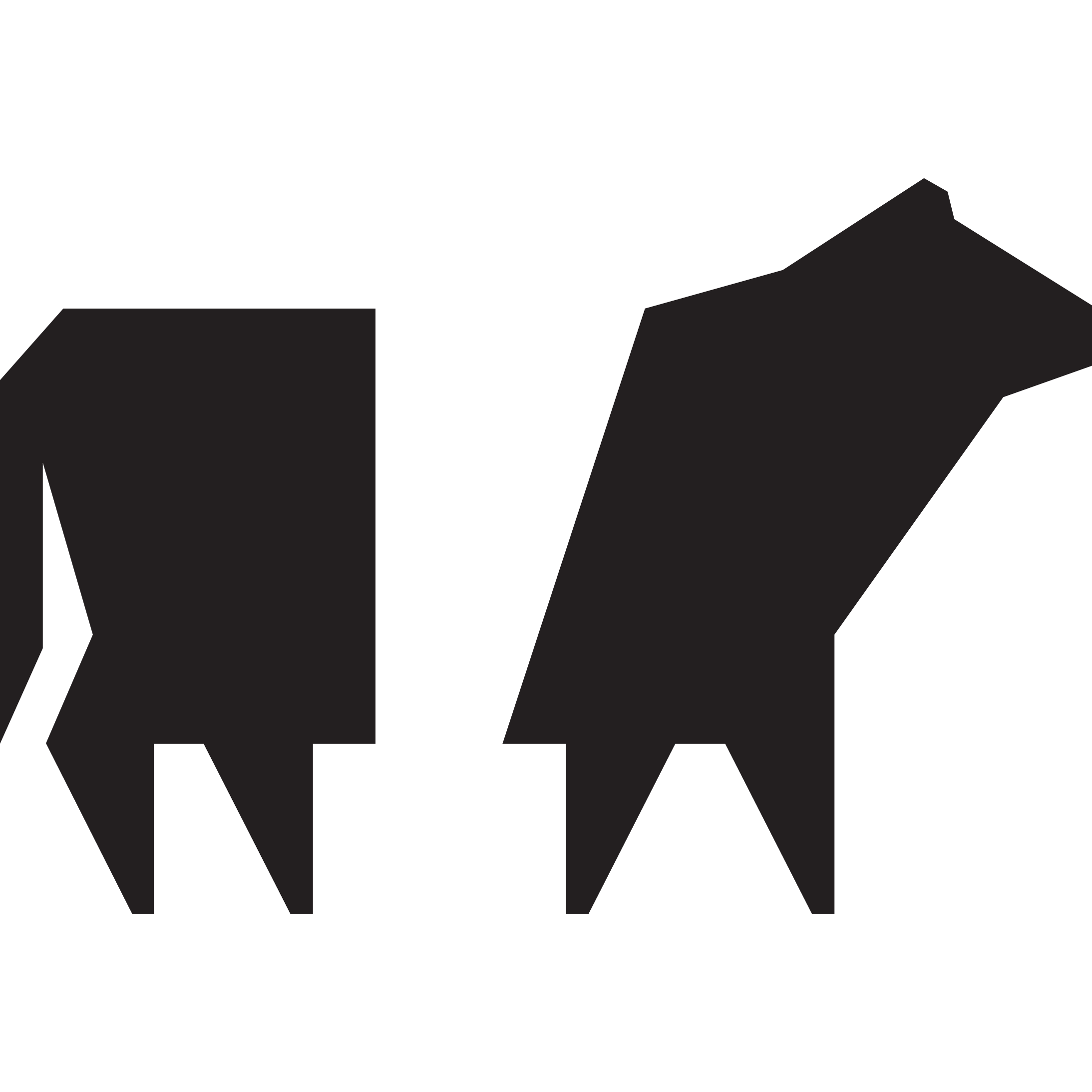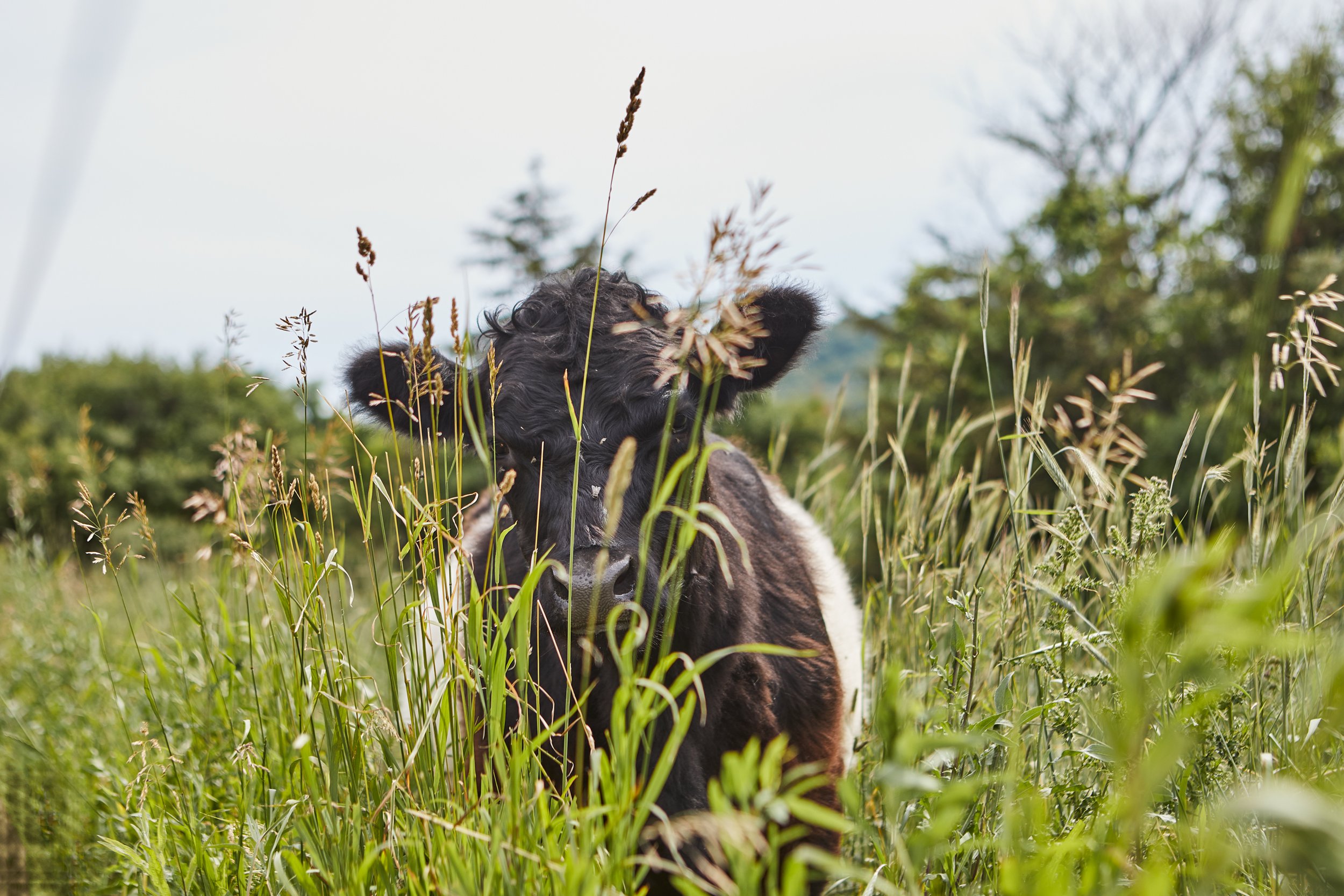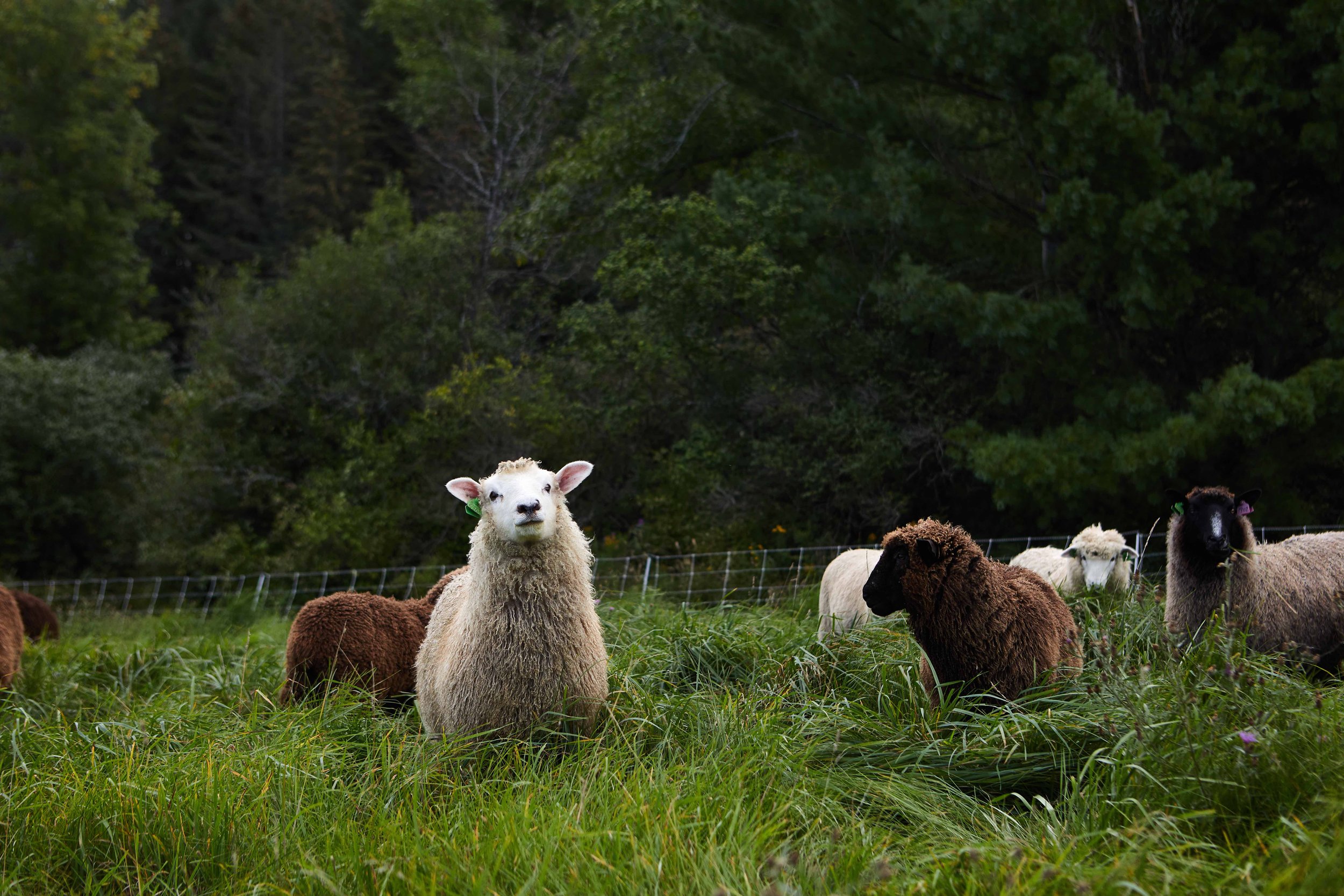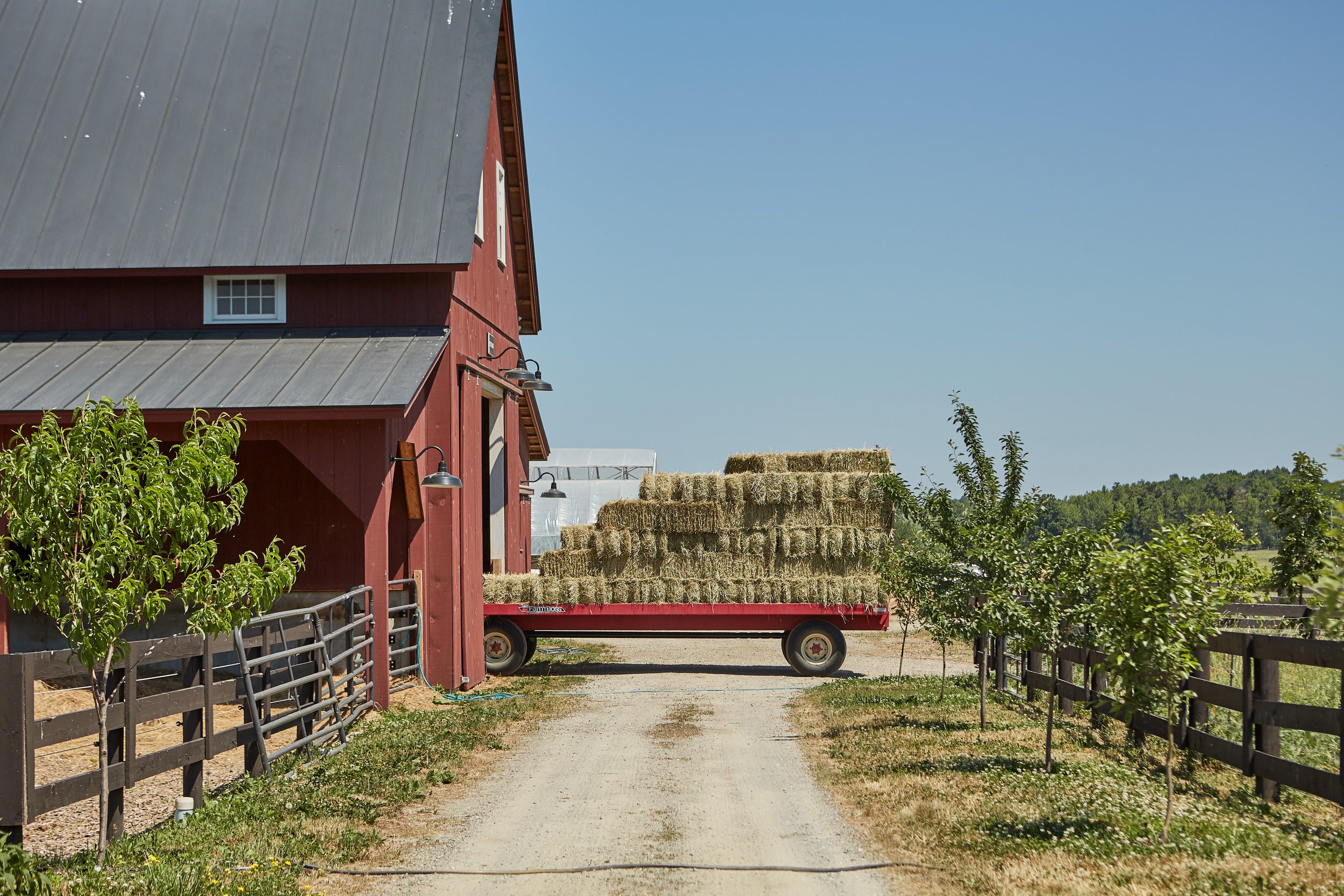Land & Livestock
Perennial Pastures
We manage over five hundred acres of hay and rotationally grazed pastures on which we raise Belted Galloway cattle, Berkshire, Tamworth, and Saddleback pigs, Cornish cross and Royal Gray broiler chickens, hens for pastured eggs, bronze breasted turkeys, and a mixed breed of Romney and Border Leicester sheep. At our heart we are grass farmers, tending healthy fields of diverse grasses, forbs, and legumes in a perennial pasture system. Our livestock are an integral part of this healthy pasture system; their manure adds nutrients that increase soil fertility and plant growth.
Grass-fed and pasture-raised
Certified organic poultry operation
Rotationally grazed
Rotational Grazing
We practice rotational grazing, which provides our livestock with new areas of high-quality pasture daily while giving our fields long periods of rest, allowing regeneration. The key to this system is careful timing of rotations. Our team moves temporary fences every day to ensure the livestock always get the best grazing available and the plants have time to fully regrow. We believe that a well-managed grass-based livestock system improves the fertility of the land, produces exceptionally flavorful meat and eggs and the highest-quality wool, and creates a beautiful pastoral landscape that benefits our entire community.
Grass-based livestock system
Improve the fertility of the land
Regenerative practices
Landscape Biodiversity
Soil is complex: it requires proper mineral, microbial, and structural properties to grow things well. Philo Ridge Farm is located on the Vergennes and Covington Soil Series. This series consists of soils that are generally deep, moderately well drained, and typically clay to silty-clay throughout their profile.
Prior to 2012, most of our fields were used for conventional corn and hay production, which required annual plowing. This conventional plowing practice compacted the soil and resulted in reduced organic matter and fertility. Clay soils also retain moisture and are slow to dry out in wet years, making it difficult to use large equipment on the land.
By stewarding this land with rotational grazing instead of conventional, equipment-reliant practices, we are using animals to enrich the soil’s organic matter and nutrient content, which subsequently improves the vitality, resilience, and biodiversity of this landscape.
Nutrient-dense foods
Carbon retention in plants and soil
Diverse grass and legume species
Field Data
We have partnered with the University of Vermont (UVM) to establish a research and evaluation protocol that farms around the state can use to support growing practices that produce healthy soils. Consistently gathering and measuring data in the field is essential to understanding which farming practices lead to optimal soil health, water quality, carbon sequestration, and other environmental benefits. The data we collect with the scientists and researchers at UVM helps us to understand the effects of our practices and continually improve the health and productivity of our land.
Water quality
Carbon sequestration
Optimal soil health






















